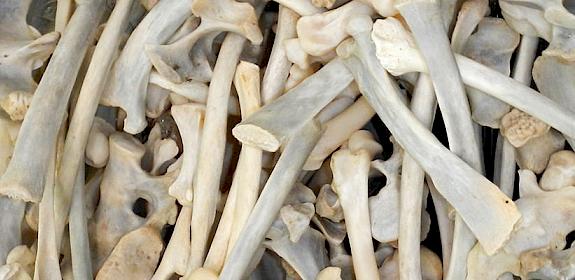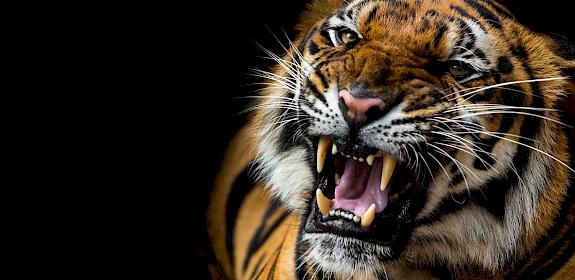South Africa rhino toll tops 500 in 2013
Johannesburg, South Africa, 26th July 2013—More than 500 rhinos have been poached in South Africa this year according to official figures released this week by South Africa’s Department of Environmental Affairs (DEA).

Only seven months into 2013, the total currently stands at 514 and looks certain to surpass last year’s record of 668 rhinos poached to meet the spiralling demand for rhino horn from Asia, particularly Viet Nam, where it is used by those who believe in its detoxification properties, especially following excessive intake of alcohol and rich food.
Kruger National Park continues to bear the brunt of the poaching: 321 rhinos have been poached there since the beginning of the year, while 54 have been killed in Limpopo, 53 in North West and 43 in KwaZulu-Natal. A total of 143 alleged poachers have been arrested this year, compared to 267 rhino-related arrests in 2012.
The news came on the day the DEA released a Rhino Issue Management (RIM) Report, which emanated from a national consultation process to facilitate a common understanding of the key issues related to the protection and conservation of South Africa’s rhino population.
The report finds there is no single solution to the rhino poaching scourge and includes a controversial recommendation that commercial international trade in rhino horn should be an integral part of South Africa’s comprehensive response strategy to the poaching crisis.
Meanwhile the rampant ongoing poaching has implications for other sectors in South Africa, including national security and tourism.
According to the DEA’s website: “All efforts to deal with the poaching crisis are not only aimed at protecting the threatened species from extinction, but also at securing the country’s national security—threatened by incursions by armed poachers—as well as part of our natural heritage and the future of the country’s tourism industry.”
Earlier this week, Czech authorities announced the arrest of 16 people on suspicion of rhino horn trafficking and seized a record 24 rhino horns. The gang allegedly hired registered hunters to visit South Africa on trophy hunts and return with the horns that were then to be sent to an unspecified Asian country.
“These events clearly demonstrate that highly organized international criminal gangs are behind the poaching racket in South Africa,” said Sabri Zain, TRAFFIC’s Director of Policy.
“International co-operation by enforcement agencies is an essential element in addressing trans-boundary criminal activities, but enforcement efforts to stem poaching and trafficking may be futile without complementary efforts to reduce demand for these illegal products.”
In August 2012, TRAFFIC published The South Africa—Viet Nam Rhino Horn Trade Nexus: A deadly combination of institutional lapses, corrupt wildlife industry professionals and Asian crime syndicates.
The report into the rhino poaching crisis in South Africa documented how poor compliance over rhino horn stockpile management, loopholes in sport hunting policy, and surging demand for horn in Viet Nam had created the ideal conditions for the involvement of sophisticated criminal networks, leading to a dramatic escalation in poaching in southern Africa.
In March 2013, two of the countries at the centre of the rhino poaching crisis—Mozambique and Viet Nam—were instructed by the Convention on International Trade in Endangered Species of Wild Fauna and Flora (CITES) to demonstrate what action they have taken to address the situation and indicate how effectively they have implemented CITES provisions and decisions.



